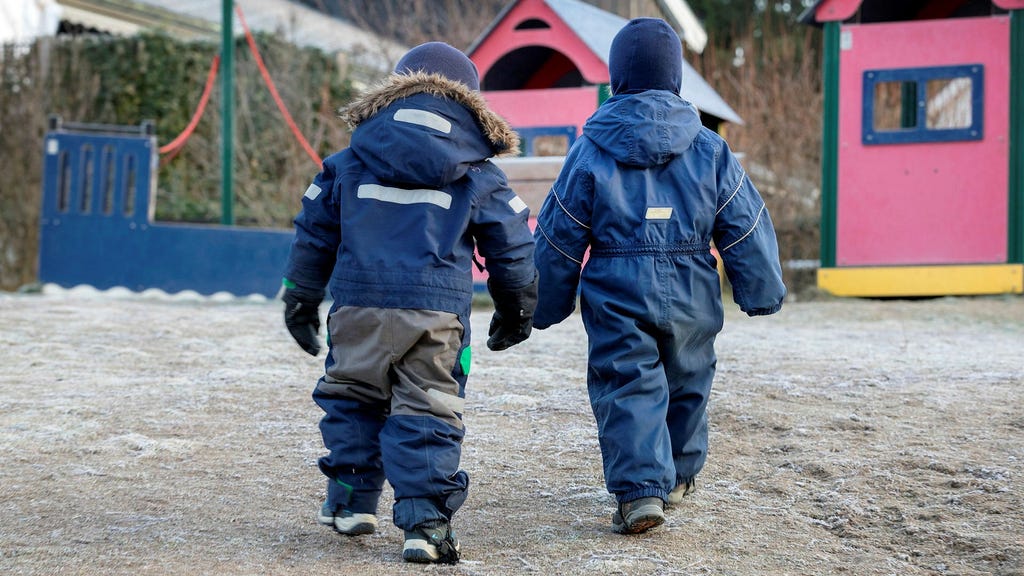The COVID-19 pandemic, while a global health crisis, inadvertently offered a unique opportunity to study the impact of reduced social interaction on the incidence of common childhood illnesses. Research conducted at Umeå University in Sweden, and published in the Journal of Allergy and Clinical Immunology, reveals a significant decrease in respiratory infections among infants born during the pandemic compared to those born before. This finding, despite Sweden’s criticized less stringent approach to pandemic restrictions, highlights the profound influence of social contact on early childhood health and immune system development. The study provides valuable insights into the complex interplay between environmental exposures, infection rates, and long-term health outcomes, particularly regarding the development of asthma.
The Umeå University study, encompassing over 3,300 families participating in the Northpop population study, employed a robust methodology combining parental surveys with data extracted from national health registers. This allowed researchers to compare the incidence of respiratory infections and antibiotic prescriptions in two distinct cohorts: children born before the pandemic and those born during the period of social distancing measures. The data, collected at nine and eighteen months of age, revealed a stark contrast between the two groups. Infants born during the pandemic experienced a markedly lower number of respiratory infections, including bronchitis and croup (viral laryngotracheobronchitis), a common respiratory infection characterized by a barking cough. This reduction signifies the critical role of social interaction, and consequently exposure to common pathogens, in the early development of the immune system.
Beyond the immediate reduction in respiratory infections, the study also observed a decrease in asthma symptoms among the pandemic-born cohort. This finding is particularly significant given the established link between early childhood respiratory infections and the subsequent development of asthma. Previous research suggests that frequent respiratory infections in infancy can dysregulate the immune system, increasing susceptibility to asthma later in life. The reduced exposure to respiratory viruses during the pandemic period may have mitigated this risk, potentially leading to a lower incidence of asthma in this cohort as they grow older. However, longitudinal follow-up is crucial to determine the long-term impact on asthma development and confirm this hypothesis.
The observed reduction in respiratory illnesses among infants born during the pandemic underscores the profound impact of social distancing measures on early childhood health. While these measures were primarily implemented to curb the spread of COVID-19, their unintended consequence was a significant decrease in exposure to other common pathogens. This reduced exposure, in turn, resulted in fewer respiratory infections, suggesting that early childhood exposure to a variety of pathogens plays a crucial role in shaping the developing immune system. This finding supports the ”hygiene hypothesis,” which posits that reduced exposure to microbes in early life can increase susceptibility to allergic diseases and autoimmune disorders.
The implications of these findings extend beyond the immediate context of the pandemic. They offer valuable insights into the complex relationship between environmental exposures, immune system development, and the long-term risk of chronic diseases like asthma. By understanding the factors that contribute to the development of these conditions, researchers can develop targeted strategies for prevention and treatment. The Umeå University study provides a compelling argument for further research into the long-term health consequences of reduced pathogen exposure in early childhood.
While the long-term implications of reduced pathogen exposure during infancy remain to be fully elucidated, the Umeå University study offers a compelling glimpse into the intricate relationship between environmental factors and immune system development. The significant reduction in respiratory infections and asthma symptoms observed in the pandemic-born cohort highlights the potential benefits of targeted interventions aimed at modulating microbial exposure in early life. Further research is needed to determine the optimal balance between protecting infants from harmful pathogens and ensuring adequate exposure to beneficial microbes for healthy immune development. This research will be crucial for developing strategies to prevent chronic diseases like asthma and promote lifelong health. The ongoing research at Umeå University, tracking the long-term health outcomes of the pandemic-born cohort, promises to provide valuable insights into these critical questions.














